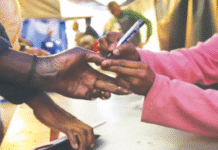Bangladesh’s experience of building a sound government-NGO partnership in combating corruption is a good practice that can be replicated in many other countries, speakers observed at a function in Panama City.
The special event on Bangladesh organised on the sidelines of the 5th Conference of State Parties (COSP-5) of the UN Convention against Corruption (UNCAC) being held this week, according to a Foreign Ministry release issued on Friday.
The event titled ‘Opportunities and Challenges in Government-Civil Society Engagement: Lessons from Bangladesh’ was jointly organised by the government of Bangladesh and Berlin-based Transparency International in the Bouquete Room of the Atlapa Convention Centre.
Barrister Shafique Ahmed, Adviser to the Prime Minister, was the chief guest at the event.
He recognised the role of the vibrant civil society in Bangladesh and said that the government has consistently benefited from its engagement with CSOs (Civil Society Organizations) and NGOs that has enabled it to make major advances in its anti-corruption drive.
Speaking on behalf of CSOs, Dr. Iftekharuzzaman, Executive Director, Transparency International, Bangladesh, termed the event as a ‘historic’ one and highlighted the strengths and opportunities of government-NGO partnership in combating corruption in Bangladesh.
He mentioned some emerging challenges, including some of the recent amendments to the Anti-Corruption Commission Act, and emphasized the need for enhanced information-sharing and confidence-building between the Government and the CSOs and NGOs.
The other panelists at the event were Mohammed Badiuzzaman, Chairman of the Anti-Corruption Commission (ACC) of Bangladesh and Mohammed Shahidul Haque, Secretary, Legislative and Parliamentary Affairs Division.
Source: UNBConnect










